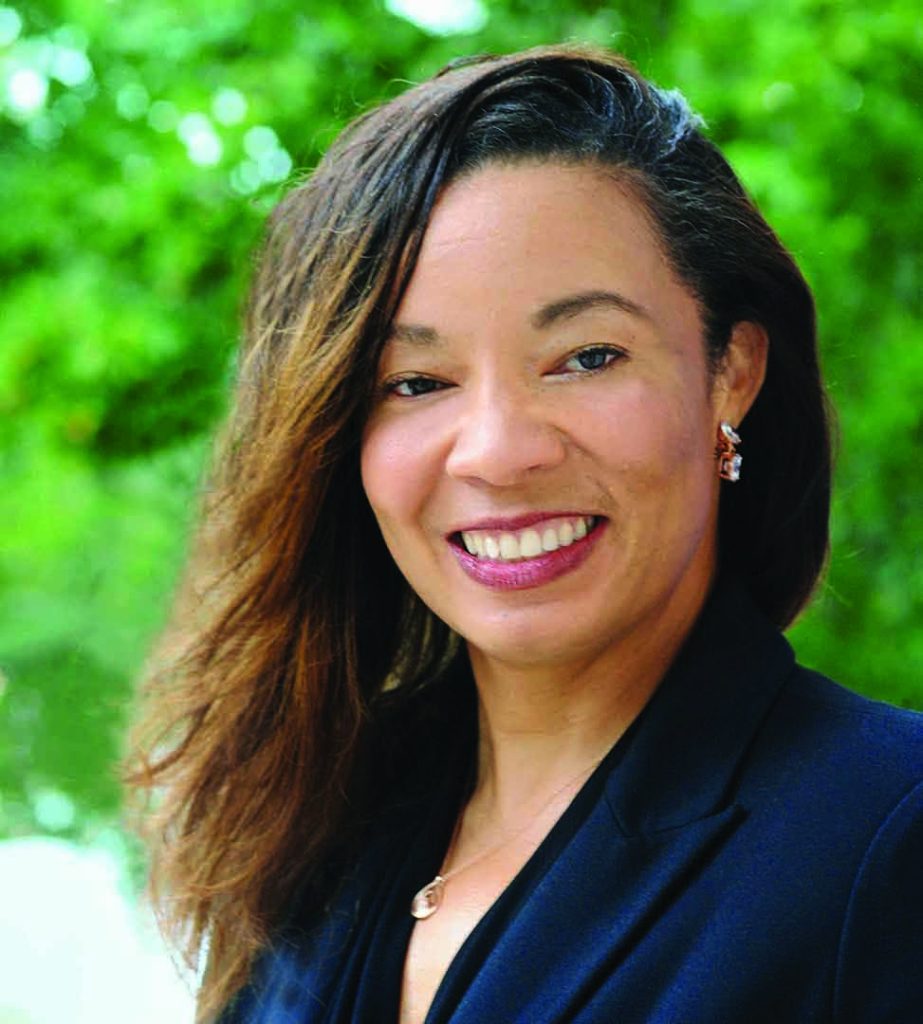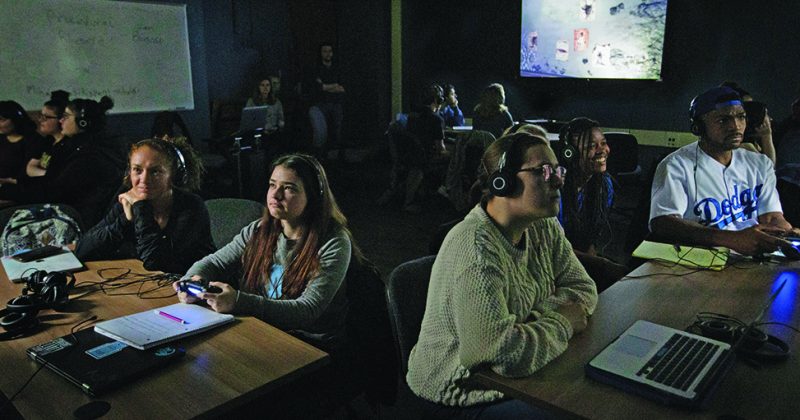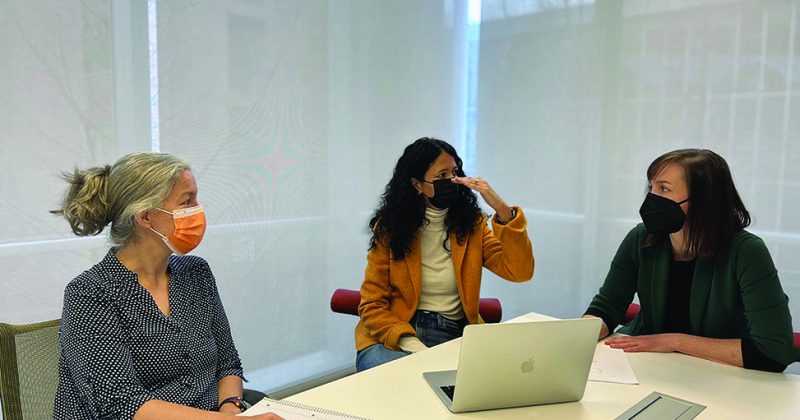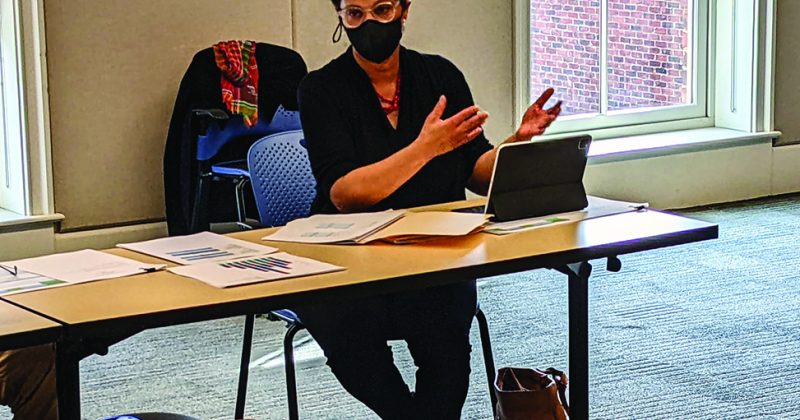
Brandi Brimmer is an associate professor in the department of African, African American and diaspora studies and a Morehead-Cain Alumni Scholar. (Photo by Donn Young)
A historian explores the social networks that helped enslaved people survive.
Brandi Brimmer was recruited to the department of African, African American and diaspora studies in fall 2021 because of her expertise in U.S. slavery and emancipation. But Brimmer, associate professor and Morehead-Cain Alumni Scholar, is quick to note, “To borrow the language of one of my mentors [Daina Ramey Berry], I’m not a historian of slavery, I am a historian of the enslaved.”
The distinction is important. Brimmer specializes in African and African American social and political history, and she has spent over a decade digging through archives — accessing federal pension records from the Reconstruction era, property and Census records, and manuscript collections that are a part of UNC’s Southern Historical Collection, among many other sources.
“My work is about what happens to the enslaved laborers when they go home,” said Brimmer. “What kindof communities are they part of? What were the sustaining aspects of their lives that enabled them to resist and survive these harsh conditions of enslavement? … I have to find their voice, I have to find their stories.”
As she teaches her students who embark on research in UNC’s archives, different methodologies are required to extract the family stories of 19th-century African Americans from the archival holdings. “Those collections weren’t built for their family papers. These are the papers of former slave holders, but there are quite a few ways to use those collections to recover the history of African Americans,” she said.
She acknowledged that the snippets gleaned from letters and records that treat enslaved people as objects or chattel can be traumatic — not just for students but for the historians who recover them. It is one reason she has focused much of her research delving into pension records at the federal archives level.
“Pension officials are interested in verifying; they are carrying out all these investigations in communities,” Brimmer said. “And what it results in is a lot of testimony about how Black people lived their lives.”
Brimmer’s most recent work is Claiming Union Widowhood: Race, Respectability, and Poverty in the Post-Emancipation South (2020), a deep look at the U.S. pension system and how widows of Black Union soldiers struggled to receive the benefits due them. Her current book is an extension of that research. It’s about a claims agent named Frederick Douglass — not the famous abolitionist of the same name.
Black claims agents were essentially acting as attorneys within the U.S. Pension Bureau who represented Black communities, investigating and bringing forward their claims, Brimmer explained. Douglass’ pension ledgers are archived at East Carolina University, and through them she has reconstructed his client list and the range of services he provided to the Black communities in the New Bern area — assisting Civil War veterans and survivors in receiving benefits, helping people recover owed wages, working on behalf of church communities.
Supplementing the ledgers with narratives from Black newspapers and church records, “I’ve uncovered this fascinating world of middle-class Black professionals that just hasn’t been written about,” she said.
Brimmer came to UNC as part of a cluster hire by the College of Arts & Sciences, bringing eight faculty to campus over two years to study issues of U.S. slavery and matters of health and wellness in communities of color. The goal of the cluster hire is to encourage collaboration, both among the new faculty and with faculty elsewhere on campus. The group has been meeting regularly since arriving on campus, led by Karla Slocum, associate dean for diversity, equity and inclusion. (See more on Slocum’s work on page 32.)
“The meetings have “definitely been a place where I can get a broader sense of the University and figure out where I can fit in,” said Brimmer. “I really am very grateful for this space.”
By Geneva Collins
Published in the Spring 2022 issue | Tar Heels Up Close
Read More

NEH grant will help develop critical games studies minor
Courtney Rivard, a teaching associate professor in the department of…

AAU award will support development of STEM teaching evaluation models
The Association of American Universities has selected five STEM departments…

‘The climate of our College community matters’
Karla Slocum became the College’s first associate dean for diversity,…

